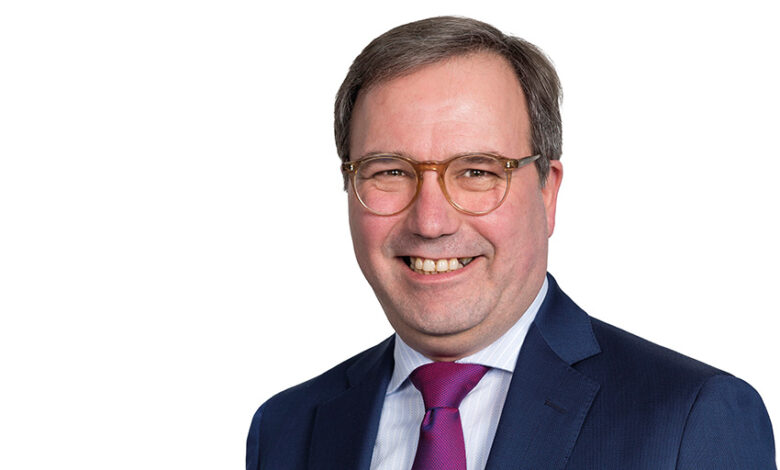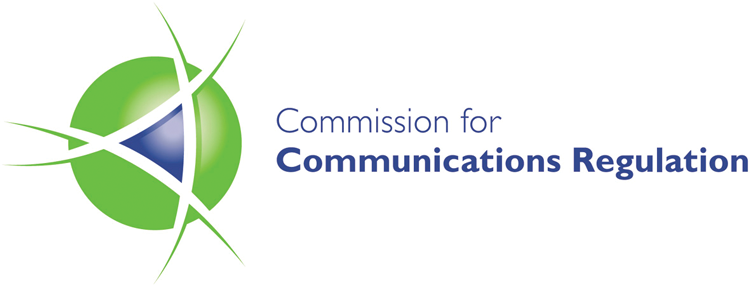Closing the digital divide between rural and urban

Robert Mourik, Chairperson and Commissioner with the Commission for Communications Regulation (ComReg), speaks to eolas Magazine about developments in the telecommunications sector in the past year and priorities over the year to come.
“Many operators at the moment are making significant investments,” Mourik says, surveying the current landscape for telecoms consumers. “There are four operators in Ireland rolling out or planning to roll out fibre infrastructure – Eir, SIRO, Virgin Media, and of course the State itself through the National Broadband Plan. In four to five years’ time, most people in Ireland will have a very high-speed fibre connection or equivalent. We anticipate that the digital divide between rural Ireland and the cities will become a thing of the past.”
Mourik sounds a note of satisfaction as he reflects on how competition in the market is currently functioning. “We have been striving for that level of competition for the last 20 years. ComReg has introduced measures over that period to stimulate competition in the Irish market in keeping with our mandate from Government,” he says.
“In the mobile sector, we have three networks offering some of the best deals in Europe and we also have new operators coming into the mobile market such as Sky. In that regard, I am optimistic. This is also being reflected in our consumer experience surveys. In the past, telecom companies have ranked at the bottom of consumer experience surveys, but you now see them climbing up as these operators are investing in improved customer care.”
ComReg has also been implementing the European Electronic Communications Code (EECC) since its transposition into Irish law. European matters will be central to Mourik, given his recent appointment as the Chair of the Body of European Regulators for Electronic Communications (BEREC) for 2025. BEREC is made up from the national regulatory authorities for electronic communications in the 27 EU member states and it assists the European Commission and national regulatory authorities in the implementation of EU telecoms rules.
“One of the major changes from the code is that customer rights have been strengthened in the legislation. This has paved the way for ComReg to be allowed to establish a customer charter for all operators to make clear what service levels and customer care levels they offer to customers, so that consumers can compare offerings and pick the best operator from their point of view,” he says.
“The legislation has also given us a better civil enforcement regime. One of the problems that we had in the past was that we tried to be active in ensuring that operators complied with the law, but it was difficult to get a financial penalty at a level that was a real deterrent. The new civil enforcement regime that we are implementing at the moment, which introduces a range of new enforcement tools including administrative financial sanctions, should help with that, meaning we should be about to encourage a better level of compliance.
“We do not hesitate to pursue operators if they are in breach of consumer legislation or the Communications Code. That is part of how we see what we need to do, trying to be the voice for the consumer in the market. One of the things people will have seen is that there are a lot of scam calls and texts going around. The number of these has increased significantly and it is undermining people’s trust in the telecoms system, so we have developed an action plan with inputs from the operators. We are considering a number of measures to address this. Some have already been adopted and we are seeing their positive effect. However, what we ultimately need are dynamic technologies that protect all Irish consumers from the worst effects of this scourge, whether they originate in Ireland or abroad.”
Also central to ComReg’s work has been a recent auction for mobile frequencies, giving operators 43 per cent more radio spectrum, which included the 700 MHz band that has been previously used by television and radio in the past and allows for greater reach due to its lower frequency.
“This spectrum is very useful in rural areas because low frequencies carry signals further,” Mourik says. “That should allow the operators to improve their coverage in rural Ireland in particular. We have also added rollout obligations to those licences. The aim is that you will see better coverage, better 5G, and more advanced services on the back of that. It always takes a while for that to come through because those networks need to be built, but for us that was a really important development.”
Mourik points out that while 18 markets were regulated when ComReg began operations 21 years ago, this has been reduced to four markets and is “likely to come down further”. Further deregulation is possible, with Mourik pointing to the consultation on the wholesale broadband market. “As competition develops further, ComReg will tailor the level of regulation by applying it only where it is necessary. Where markets are competitive and work well in delivering high-quality services to consumers then there is a reduced need for regulation. However, ComReg will continue to intervene to promote competition and protect customers where appropriate. In addition, when we do regulate, we seek to ensure there are suitable incentives for telecoms companies to invest in next generation communications services.”
Concluding, Mourik acknowledges the evolution that has taken place in the market and how telecoms has become part of a wider digital connectivity sector, where phone calls are made through apps such as WhatsApp. “Our work and the necessary legislation underpinning it needs to adapt,” he says. “We need to rethink our approach to some aspects of what to do. The European Commission and the EU are in the process of bringing forward a lot of new legislation. We have the Digital Services Act and the Digital Markets Act already and there is more to come.”
“Telecommunications is now the fourth utility. It is an essential part of our work, social, business, and educational lives. It is no longer a nice-to-have – you cannot do basic things anymore if you do not have broadband. It is rapidly becoming as important as having water, gas, and electricity in your home. This means that we must ensure that our telecoms networks are fit for purpose, secure and resilient for current and future generations of Irish people.”
T: 01 804 9600
E: industry@comreg.ie
W: www.comreg.ie






